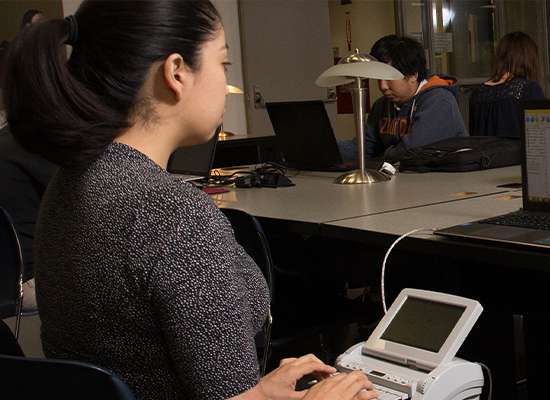Durham court reporting and legal ethics: maintaining professionalism
All Regarding Court Reporting: Crucial Insights Into Its Significance in Law
Court reporting offers a vital feature within the legal structure, supplying a reliable and exact record of procedures. Through sophisticated strategies and tools, court reporters capture the subtleties of testaments and lawful discussion. The value of their work prolongs beyond plain transcription. As the lawful landscape evolves, so too does the duty of modern technology in court reporting. Comprehending these dynamics reveals much deeper ramifications for justice and transparency in the legal system.
The Duty of Court Reporters in the Legal System

Although frequently forgotten, court reporters play an important role in the lawful system by ensuring a verbatim and precise document of procedures. Their key obligation involves transcribing spoken words during trials, depositions, and other legal occasions, which acts as a main record for future recommendation. This documentation is very important for appeals, as it supplies the required information for evaluating choices made by discretionary.
Court press reporters have to have remarkable listening skills and a deep understanding of lawful terms to capture the nuances of testimony and argumentation properly. Their job adds to openness within the judicial process, permitting liability and justness. Furthermore, they facilitate access to justice by making records readily available to included celebrations, ensuring that every person has the opportunity to assess the proceedings. In this means, court press reporters promote the stability of the lawful system, enhancing the importance of accurate communication in matters of legislation.
Tools and methods Made use of in Court Reporting
In court reporting, different techniques and tools enhance the accuracy and efficiency of transcription. Stenography technology plays a significant function, enabling press reporters to catch talked words quickly, while digital recording methods provide different options for documentation. Comprehending these tools is necessary for realizing how court press reporters satisfy their essential function in the lawful system.
Stenography Innovation Summary
Stenography modern technology acts as the keystone of contemporary court reporting, enabling exact and reliable transcription of spoken discussion. Using specialized makers understood as stenographs, stenotype reporter can record speech at exceptional speeds, frequently surpassing 200 words per min. These machines utilize an one-of-a-kind keyboard design that permits several tricks to be pressed simultaneously, creating phonetic depictions of words - durham court reporting. This approach lessens the demand for comprehensive punctuation and boosts transcription precision. Additionally, clerks use different shorthand methods and icons to further improve the process, making certain that no information is neglected throughout procedures. The integration of stenography technology not only cultivates efficient interaction in legal settings but also maintains the honesty of the judicial process by supplying accurate and reputable records of discussions
Digital Recording Methods
An increasing variety of court reporting experts are transforming to digital recording techniques to boost the precision and effectiveness of their transcriptions. These strategies make use of sophisticated audio and video modern technology to record process in real-time. Digital recorders, often combined with high-quality microphones, ensure that every word talked is protected with clarity. Specialized software application can record audio documents immediately, permitting for quicker turn-around times. Some professionals include double recording systems for redundancy, guaranteeing no important information is lost. Additionally, digital recordings can be easily indexed and looked, assisting in swift retrieval of particular sectors. As legal environments evolve, accepting these digital devices not only improves the reporting process but additionally keeps the honesty of the document.
The Relevance of Accuracy in Transcription
Accuracy in transcription is necessary in court reporting, as it assures that lawful documents mirror the true web content of process. This precision can substantially affect situation results, impacting the decisions made by discretionary. Maintaining high requirements of precision is paramount in the legal occupation.

Precision in Legal Records
Although the legal system depends greatly on eloquent debates and influential rhetoric, truth foundation of judicial procedures hinges on the accuracy of legal records. Exact transcription is necessary, as it guarantees that every declaration, judgment, and question is recorded properly. Such accuracy serves numerous purposes, including providing a reputable recommendation for allure procedures and preserving the stability of the judicial system. Mistakes in transcription can bring about misconceptions, misconceptions, and possibly harmful repercussions for all events involved. As a result, stenotype reporter must possess phenomenal skills and interest to information, as their work directly affects the clearness of lawful files. Eventually, the accuracy of lawful documents underpins the count on put in the judicial procedure, strengthening the relevance of careful transcription.

Effect on Case Outcomes
When legal procedures unfold, the precision of transcription frequently dictates the trajectory of a case's outcome. Accurate court reporting warranties that every word spoken is effectively captured, allowing attorneys, courts, and judges to make informed choices based on the record. Errors in transcription can result in misunderstandings, misinterpretations, and potentially unfair judgments. The honesty of lawful papers depends heavily on the precision of these records, as they offer as the foundation for allures and more lawsuits. In high-stakes instances, where the implications are profound, the role of a court press reporter comes to be much more important. Keeping strenuous criteria in transcription not only supports the lawful process yet additionally promotes the concepts of justice and justness in the courtroom.
Court Reporting in Different Lawful Settings
Court reporting plays a vital function throughout various legal setups, guaranteeing that process are properly documented for future recommendation. In criminal court, stenotype reporter transcribe statements, evidence, and judicial judgments, which are essential for charms and case evaluations. In civil lawsuits, precise records assist in the exploration process and give a reliable record for test proceedings. Administrative hearings often rely on court reporters to maintain a main document, making sure transparency and responsibility in governmental processes. Household courts additionally gain from court reporting, as exact documentation of process can influence protection choices and settlements. In addition, depositions in pre-trial stages call for specific recordings to capture the nuances of witness testimonies, which may be considerable in forming situation techniques. On the whole, court reporting serves as a foundation in the legal system, promoting justness and clearness throughout diverse judicial atmospheres.
The Effect of Innovation on Court Reporting
As technology remains to evolve, its influence on court reporting has come to be increasingly significant. Advancements such as electronic recording, real-time transcription software, and fabricated knowledge have actually changed conventional methods. Digital audio recorders now capture courtroom proceedings with impressive clearness, enabling stenotype reporter to concentrate on nuances and context as opposed to exclusively on inputting. Real-time transcription modern technologies allow prompt access to records, promoting effectiveness and enhancing collaboration among lawyers. Furthermore, artificial knowledge devices are being integrated to aid in the transcription procedure, decreasing human error and speeding up file generation. Regardless of these developments, the necessary skills of court press reporters continue to be vital, as they give a nuanced understanding of lawful language and court dynamics. Inevitably, technology enhances rather than changes the expertise of court reporters, making see page certain that the honesty and accuracy of legal documentation are maintained in an increasingly digital landscape.
Profession Opportunities and Pathways in Court Reporting
The evolution of modern technology in court reporting has opened up a range of occupation chances for aiming experts in the area. Generally, stenotype reporter were largely in charge of recording legal procedures. Nonetheless, improvements such as electronic recording and real-time reporting have broadened their functions.
Today, court reporters can focus on locations such as captioning for transmission, supplying transcription solutions for legal firms, and functioning in the company field for depositions or meetings - durham court reporting. In addition, opportunities in remote reporting, particularly because of the increase of digital courts, have actually come to be progressively common
Educational paths consist of official training programs, accreditation training courses, and proceeding education to remain upgraded with technical modifications. Networking within legal and professional companies additionally plays a considerable role in occupation advancement. In general, the diverse chances weblink in court reporting reflect the vibrant nature of the lawful occupation and the enhancing demand for competent professionals.
The Future of Court Reporting in an Evolving Legal Landscape
How will the role of court reporting adapt as the legal landscape remains to develop? As technology advances, court reporting is likely to embrace ingenious tools such as synthetic intelligence and real-time transcription software program. These innovations might enhance precision and efficiency in catching legal process. In addition, the raising occurrence of remote hearings demands that stenotype reporter end up being adept in electronic platforms, making certain seamless paperwork regardless of location.
All at once, court press reporters will require to adapt their abilities to manage brand-new kinds of situations, such as those involving cyber legislation and copyright disagreements, which need specialized knowledge. Furthermore, the demand for instant access to records will press professionals to provide quicker turn-around times without jeopardizing top quality. Ultimately, the future of court reporting will pivot on an equilibrium between typical skills and technical combination, guaranteeing that the stability of the lawful process continues to be undamaged in an increasingly digital world.
Frequently Asked Questions
Exactly How Do Stenotype Reporter Take Care Of Delicate Info During Procedures?

What Qualifications Are Required to End Up Being a Court Press Reporter?
To come to be a stenotype reporter, people typically need a senior high school diploma, specialized training from a certified program, proficiency in shorthand or voice writing, and certification or licensure, depending on state requirements and regulations.
Are Court Reporters Required to Have a License?
Stenotype reporter are usually called for to obtain a certificate, depending upon the jurisdiction. Licensing assurances that they fulfill details requirements of efficiency and professionalism, which is important for maintaining this the honesty of lawful proceedings.
Just How Do Court Press Reporters Take Care Of Various Accents and Dialects?
Stenotype reporter handle different accents and languages with comprehensive training, practice, and knowledge with different speech patterns. They frequently make use of specialized software application and techniques to properly capture talked words, ensuring clearness and precision in their records.
What Is the Average Salary for a Court Press reporter?
The average wage for a stenotype reporter varies by area and experience, usually varying from $50,000 to $80,000 yearly. In high-demand areas, incomes can surpass $100,000, mirroring the profession's importance and specialized abilities.
Commonly overlooked, court press reporters play a crucial function in the lawful system by ensuring a precise and verbatim document of process. In criminal court, court press reporters transcribe statements, evidence, and judicial judgments, which are critical for appeals and case evaluations. Family members courts additionally profit from court reporting, as accurate documentation of procedures can influence custody decisions and settlements. Typically, court reporters were mostly responsible for transcribing legal procedures. Today, court reporters can specialize in areas such as captioning for tv broadcasts, offering transcription solutions for lawful companies, and functioning in the business market for conferences or depositions.